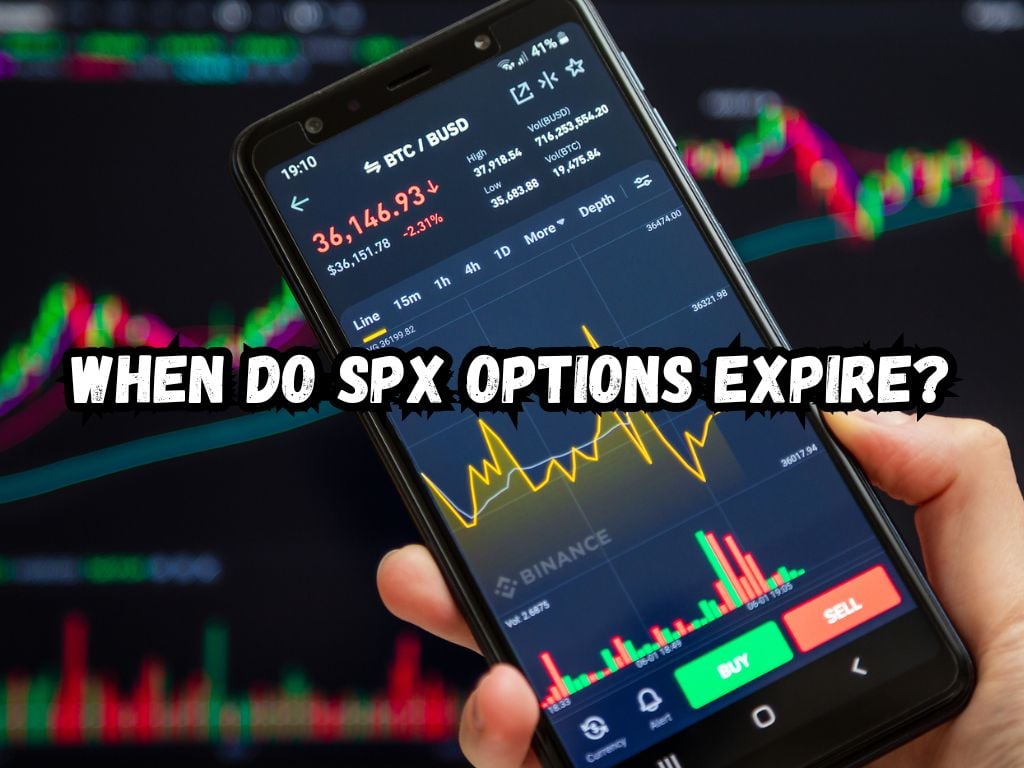Navigating the complex world of options trading can be daunting, yet understanding SPX options and their expiration dates is crucial for any trader.
This article aims to demystify when do SPX options expire?
Understanding SPX Options
SPX options are contracts that give investors the right, but not the obligation, to buy or sell the S&P 500 index at a set price before the contract expires.
Grasping the significance of expiration dates is fundamental for effective trading, as these dates dictate the duration of your market exposure and potential risk.

When Do SPX Options Expire?
Traditionally, SPX options expire on the third Friday of each month. This is a key date every trader should mark on their calendar.
The last trading day is typically the day before expiration, although it is important to check specific details for each option.
SPX options feature both AM and PM settlements, influencing how and when options values are calculated on the expiration day.
Weekly SPX Options and Their Expirations
In addition to monthly expirations, SPX options offer weekly expirations known as SPXW. These options expire on Monday, Wednesday, and Friday, providing traders with more flexibility and opportunities to trade on market movements.
Each weekly cycle offers a distinct advantage, allowing traders to tailor their strategies to specific market events or periods.
End-of-Month (EOM) SPX Options
EOM SPX options cater to traders seeking exposure until the end of a calendar month. These options expire on the last business day of each month, offering a unique opportunity for traders to position themselves relative to monthly market closings.
Understanding the nuances of EOM expirations can enhance trading strategies, especially for those looking to capitalize on monthly market trends.
Quarterly and Yearly Expirations
For long-term market perspectives, SPX options also present quarterly and yearly expirations.
These longer-term options afford traders the ability to hedge or speculate on extended market trends.
Planning around these expiration periods requires a broad understanding of market cycles and potential economic events that may impact the S&P 500 index.
Trading on Expiration Day
Trading SPX options on expiration day demands precision and awareness. Traders need to be cognizant of the final hours of trading to manage or close their positions effectively.
The global trading hours feature of SPX options also offers the flexibility to react to off-hours market movements, a critical aspect for traders in different time zones or those reacting to international events.
Pro Tips
Managing positions as expiration approaches involves careful strategy and timing. Traders should aim to close or adjust their positions well before the final trading hours to avoid unexpected market volatility.
Additionally, staying informed about the official exchange calendar is essential to prevent any oversight regarding specific expiration dates and times.
Common Mistakes to Avoid
One common mistake is neglecting the impact of global events on SPX options nearing expiration. Market volatility can intensify, leading to unexpected outcomes for those not prepared.
Another oversight is the miscalculation of AM and PM settlements, which can lead to misinterpretation of option valuations at the close of the trading day.

Tax Considerations for SPX Options
Traders must be mindful of the tax implications tied to trading SPX options. Profits from these instruments are generally subject to short-term capital gains taxes, as most options are held for less than a year.
However, SPX options are often treated differently due to their Section 1256 contract status, which allows for a beneficial 60/40 tax split—60% long-term capital gains rate and 40% short-term, regardless of the holding period.
When options expire, the outcome can either be a taxable event or a loss that could offset other gains.
It is important for traders to consult with a tax professional to understand their specific obligations, as tax treatment can significantly affect net returns from options trading activities.
Frequently Asked Questions
What happens if SPX options expire in the money?
If SPX options expire in the money, they are typically settled in cash. The amount is based on the difference between the strike price and the closing value of the S&P 500 index.
How does SPX option settlement work on expiration day?
Settlements can occur either in the AM or the PM, depending on the type of SPX option. AM settlements are based on the opening prices of index components, while PM settlements use the closing prices.
Can you trade SPX options after standard market hours on the expiration day?
Yes, SPX options feature global trading hours, allowing trades to occur beyond the standard market hours. This flexibility lets traders adjust their positions in response to overnight or early morning market developments.
Conclusion
Understanding when SPX options expire is fundamental for traders aiming to harness the opportunities within the S&P 500 index.
By familiarizing themselves with the various expiration cycles and the specifics of trading on expiration day, investors can navigate the options market more effectively.
Keeping abreast of these key dates and employing strategic planning can significantly enhance the trading experience, allowing for more informed decision-making and potentially higher returns.


 Tags:
Tags:










